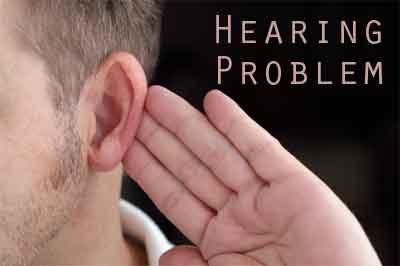- Home
- Editorial
- News
- Practice Guidelines
- Anesthesiology Guidelines
- Cancer Guidelines
- Cardiac Sciences Guidelines
- Critical Care Guidelines
- Dentistry Guidelines
- Dermatology Guidelines
- Diabetes and Endo Guidelines
- Diagnostics Guidelines
- ENT Guidelines
- Featured Practice Guidelines
- Gastroenterology Guidelines
- Geriatrics Guidelines
- Medicine Guidelines
- Nephrology Guidelines
- Neurosciences Guidelines
- Obs and Gynae Guidelines
- Ophthalmology Guidelines
- Orthopaedics Guidelines
- Paediatrics Guidelines
- Psychiatry Guidelines
- Pulmonology Guidelines
- Radiology Guidelines
- Surgery Guidelines
- Urology Guidelines
Nicotine exposure may cause hearing problems in kids: study

Berlin : Nicotine exposure, before and after birth, can cause a child to have hearing problems due to abnormal development in the brains auditory region, a new study has warned.
Nicotine exposure during pregnancy has previously been shown to harm the brain development of a foetus.
Mothers who smoke, use e-cigarettes or nicotine replacement therapy have an increased risk of premature delivery, decreased child birth weight, and an increased rate of sudden infant death.
The research from Freie Universitat Berlin in Germany found, for the first time, that the auditory brain stem, an area of the brain which plays a role in analysing sound patterns, may develop abnormally in offspring when pregnant mothers are exposed to nicotine before and after giving birth.
Children with impaired auditory brain stem function are likely to have learning difficulties and problems with language development.
The researchers added nicotine to the drinking water of pregnant mice to reach blood nicotine levels similar to heavy human smokers.
The offspring of the mice were exposed to nicotine before birth and via the mothers milk until they were three weeks old an age that is approximately equivalent to primary school children.
The scientists then analysed the brains of the offspring mice by measuring the firing properties and signalling abilities of their neurons.
These results were compared to a control group of offspring from pregnant mice with no nicotine exposure.
Neurons that get input from the cochlea (sensory organ in the ear) were less effective at transmitting signals to other auditory brainstem neurons in mice exposed to nicotine. Moreover, these signals were transmitted with less precision, which deteriorates the coding of sound patterns.
These could be part of the underlying causes for auditory processing difficulties in children of heavy smoking mothers.
"We do not know how many other parts of the auditory system are affected by nicotine exposure," said Ursula Koch, professor at the Freie Universitat Berlin.
"More research is needed about the cumulative effect of nicotine exposure and the molecular mechanisms of how nicotine influences the development of neurons in the auditory brainstem," said Koch.
"If mothers smoke during pregnancy and their children show learning difficulties at school, they should be tested for auditory processing deficits," she said.
The study was published in The Journal of Physiology.

Disclaimer: This site is primarily intended for healthcare professionals. Any content/information on this website does not replace the advice of medical and/or health professionals and should not be construed as medical/diagnostic advice/endorsement or prescription. Use of this site is subject to our terms of use, privacy policy, advertisement policy. © 2020 Minerva Medical Treatment Pvt Ltd